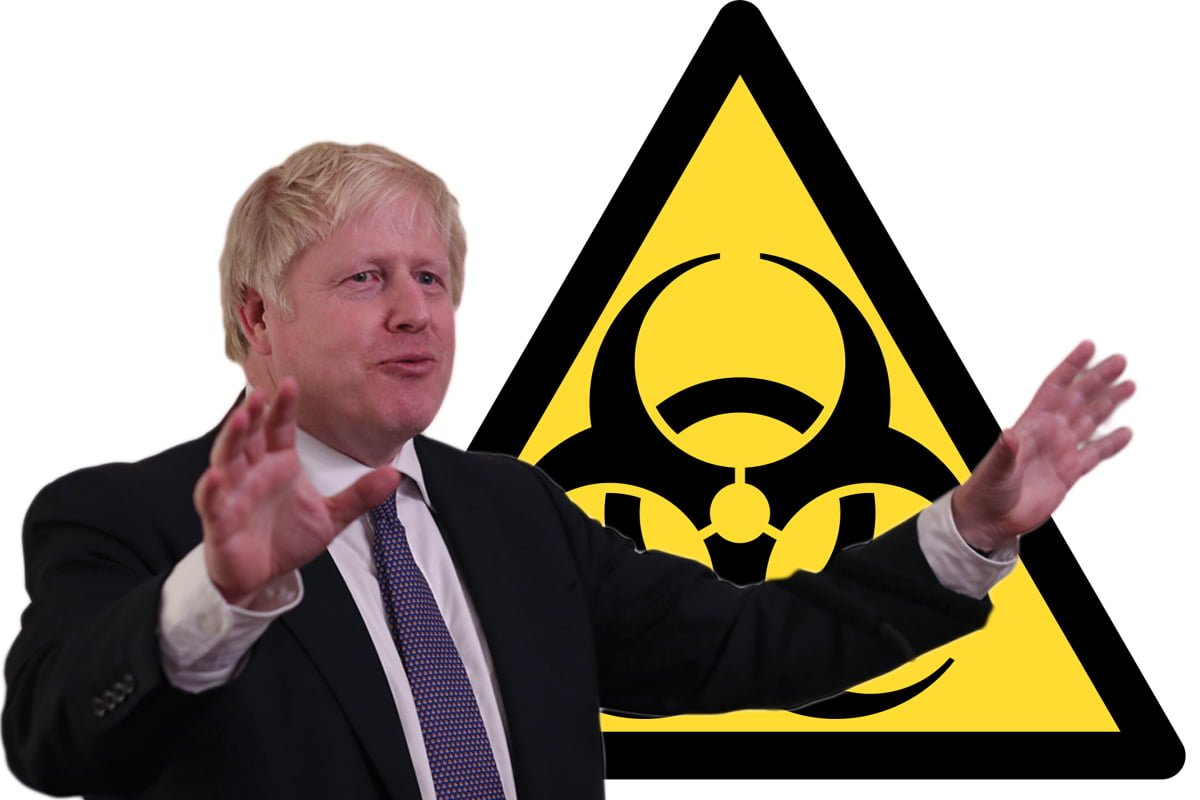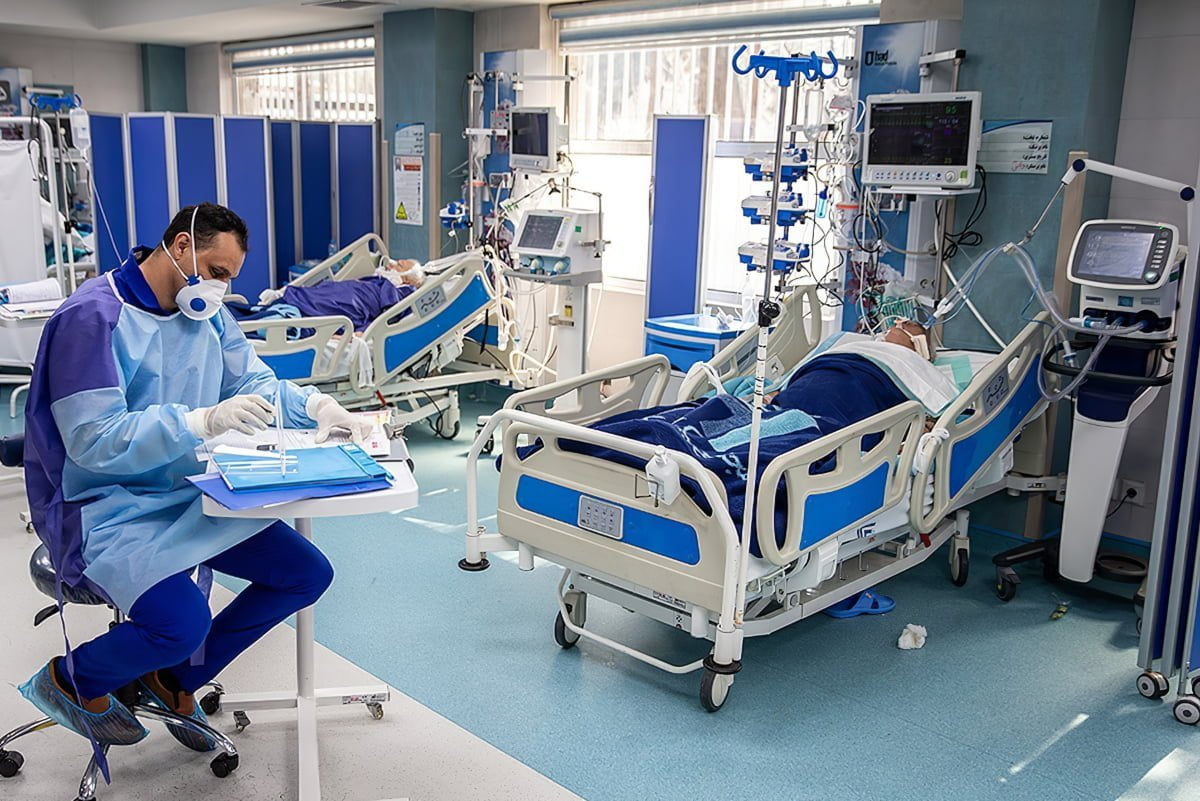The NHS desperately requires thousands of new ventilators to treat coronavirus patients. Without these, mortality rates will rise dramatically. But the Tories and their friends in industry have proved incapable of addressing the shortage.
The government’s incompetency over the COVID-19 crisis would be laughable were the consequences not so dire. This is particularly the case when it comes to their failure to acquire thousands of new ventilators – perhaps the most crucial piece of equipment in the fight against coronavirus.
Almost a month ago, Boris Johnson appealed to industry bosses to divert resources to his tactlessly-named ‘Operation Last Gasp’. Subsequently, the Prime Minister has almost found himself in need of one of these scarce machines.
Fast forward to today, however, and the much-hyped arrival of new ventilators is nowhere to be seen. Last week, Tory health secretary Matt Hancock promised that the government would obtain an additional 1,500 machines in the coming days. But yesterday he was forced to admit that only 200 had been sent out to hospitals – just 13% of his own target.
It is clear that the Tories and their big business friends are leaving our health service woefully underprepared to deal with the coronavirus crisis.
Warning signs
The warning signs for this shortage appeared well before the outbreak of the virus, back in December. In fact, the government was even alerted to the danger back in 2016, following a simulation of a flu pandemic.
The chief medical officer at the time, Sally Davies, said that, “it became clear that we could not cope” due to “inadequate ventilation”. The simulation also highlighted shortages in personal protective equipment (PPE).
And how did the Tory government respond to this glaring error in their plans? By quietly sweeping it under the rug. According to one source close to the government, the report was “too terrifying” to be published. Perhaps what they were truly terrified of was the cost of properly investing in our health service.
Dither and delay
 It is estimated that half of the total cases of coronavirus will arrive during a three week period between May and June. This means that during this peak there will be a demand for between 60,000-100,000 ventilators.
It is estimated that half of the total cases of coronavirus will arrive during a three week period between May and June. This means that during this peak there will be a demand for between 60,000-100,000 ventilators.
As a result of reorganising resources – and no doubt a certain degree of callous ‘pragmatism’ (i.e. sacrificing lives) – the government has revised down its own targets for the amount of ventilators required, from an original figure of 30,000 to a new target of 18,000.
But, even then, how many does the NHS currently have access to? Roughly 10,000 according to government estimates, many of which are already in use.
One would expect the Cabinet to have been in a rush to make up the shortfall. Yet the call for manufacturers to begin producing more of the machines came six weeks after the first cases were reported in the UK.
But that’s not the end of the matter. Since ventilators are generally produced in small amounts, it will now fall on manufacturers in other industries – many of whom are inexperienced in making the machines – to produce them en masse.
Luckily, the Tories were at hand to show them how it’s done: the two-page document sent out to prospective manufacturers included links to YouTube videos with potential blueprints for designs.
When the European Union invited the UK to participate in an effort to coordinate the production and distribution of ventilators, the government did not respond. In a sorry attempt to appeal to British ‘patriotism’ and nationalist sentiments, the government said that the UK was no longer in the EU, and that they were perfectly fine working alone.
Downing Street later claimed, however, that it had missed the deadline because of a “communication problem”. The government literally tried to pretend that they hadn’t seen the email!
Greased palms
At the same time, the government has been happy to dish out contracts to companies like Dyson and JCB – despite neither of them having any experience producing ventilators. Their reason for doing so becomes a lot clearer in light of the fact that both companies are no strangers to the Tories, with JCB having donated over £10 million to the party.
The consortium including Dyson recently released their first machines to great fanfare – having produced the grand total of just 30 ventilators. Michael Gove was quick to remind us they would be the “first of thousands”. At such a rate, we would just about have enough ventilators to cope with this crisis by the late 2030s.
Flashy Formula One companies were also approached about rapidly producing ventilators to address the shortfall. But yesterday it was revealed that none of the models developed by these big engineering firms were suitable for use in treating coronavirus cases, and procurement plans were hastily scrapped.
The prototype developed by Dyson – which had pledged to manufacture 15,000 new machines in the space of weeks – also falls into this category. And it seems that the government has no Plan B.
So much for the efficiency of the ‘market’. In this darkest hour, patients are left asking, what has the pinnacle of British industry been able to muster? Nothing.
For a socialist plan of production
 This farcical attempt to prepare for the virus exposes the severe limitations of the capitalist markets in the face of crisis. Without economic planning, there can be no hope of the state commanding industry effectively. The fact that every capitalist state resorts to central planning during wartime is testament to this.
This farcical attempt to prepare for the virus exposes the severe limitations of the capitalist markets in the face of crisis. Without economic planning, there can be no hope of the state commanding industry effectively. The fact that every capitalist state resorts to central planning during wartime is testament to this.
It is clear that the anarchy of the market and the profit system must be replaced by a rational, socialist plan of production. If profitability was not a concern, then there would be no delay in taking over whole branches of industry and repurposing them for the production of ventilators and other vital items.
The labour movement must demand the immediate nationalisation of the big engineering firms and manufacturers, in order to plan these vital industries and divert the necessary resources towards fighting the pandemic.
This should be combined with a call for workers’ control. While the capitalists dither and delay in the face of catastrophe, manufacturing workers could be taking over production lines and repurposing them for the production of essential items like ventilators. Through the trade unions and the wider labour movement, this could develop into a harmonised plan of production across all industries.
The potential for workers’ control to address crises such as these is demonstrated by the experience of workers at Lucas Aerospace in the 1970s. At that time, when their employers tried to make them redundant, these workers organised and drew up plans for over 150 socially useful products. Such ingenuity is what is required to overcome the crisis we face today.
While the Tory government leads us into a blind alley, it is clear that only the socialist transformation of the economy points the way out of this impasse.






